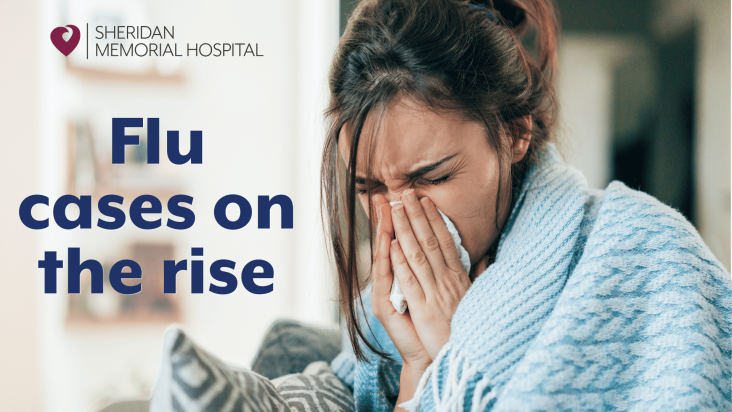By David Nickerson, MD – physician at Sheridan Memorial Hospital’s SameDay Health & Imaging
January through March usually marks the worst of cold and flu season in our community. Common viruses during this time are influenza, RSV, COVID-19 and multiple other viruses that are not routinely tested for because they do not have a specific treatment.
This year, Influenza A levels are the highest they have been in 15 years. Influenza A typically begins to increase in our community toward the end of December and often peaks in January before gradually tapering off. In late February or March, there is usually a second wave of Influenza B. Influenza tracking information shows that as influenza began decreasing after its usual January peak that it suddenly spiked again to almost twice that level. We have seen that pattern in the Sheridan community, as many have likely noticed from school and work absences.
Clinic visits for flu symptoms are at the highest level they have been in 28 years. There are likely multiple factors contributing to this. There are currently multiple strains of Influenza A circulating. You may have heard that a woman in Wyoming was hospitalized for bird flu earlier this week. Along with other hospitals in the state, Sheridan Memorial Hospital sends samples from patients hospitalized with influenza for subtyping and no other cases of bird flu have been identified in Wyoming. At present, bird flu does not appear to be contributing to the high number of Influenza A cases.
This is more likely related to the ongoing mutation of the influenza virus, which affects its infectivity as well as how sick it makes those infected with it. Seasonal influenza vaccines are directed against the strains that appear most likely to be the dominant infections. Some years this prediction turns out to be quite accurate, resulting in a fairly effective vaccine. Other years it is not a good match. The vaccination rate also has an effect. The rate of influenza vaccinations has been falling since the start of the Covid-19 pandemic and is currently at 46%. Seasonal influenza shots are not mRNA vaccines and have used other traditional methods for the past 70 years.
In addition, RSV, coronavirus and other cold viruses continue to be seen, though at a lower level than influenza.
If you become ill with fever, body aches, headache, sore throat or other cold and flu symptoms, it does make sense to see a doctor. While most illnesses will recover with rest, fluids and over the counter medications, antiviral medications may be an option if taken within the first few days of symptoms and can reduce the severity and duration of your symptoms.
Sheridan Memorial Hospital’s SameDay Health & Imaging offers urgent care services, including treatment and testing for respiratory illnesses and the flu. Walk-ins are always welcome or you can schedule an appointment at SheridanSameDay.com. We are now open Monday through Friday from 6:30 a.m. to 6 p.m. and weekends from 9 a.m. to 6 p.m.

